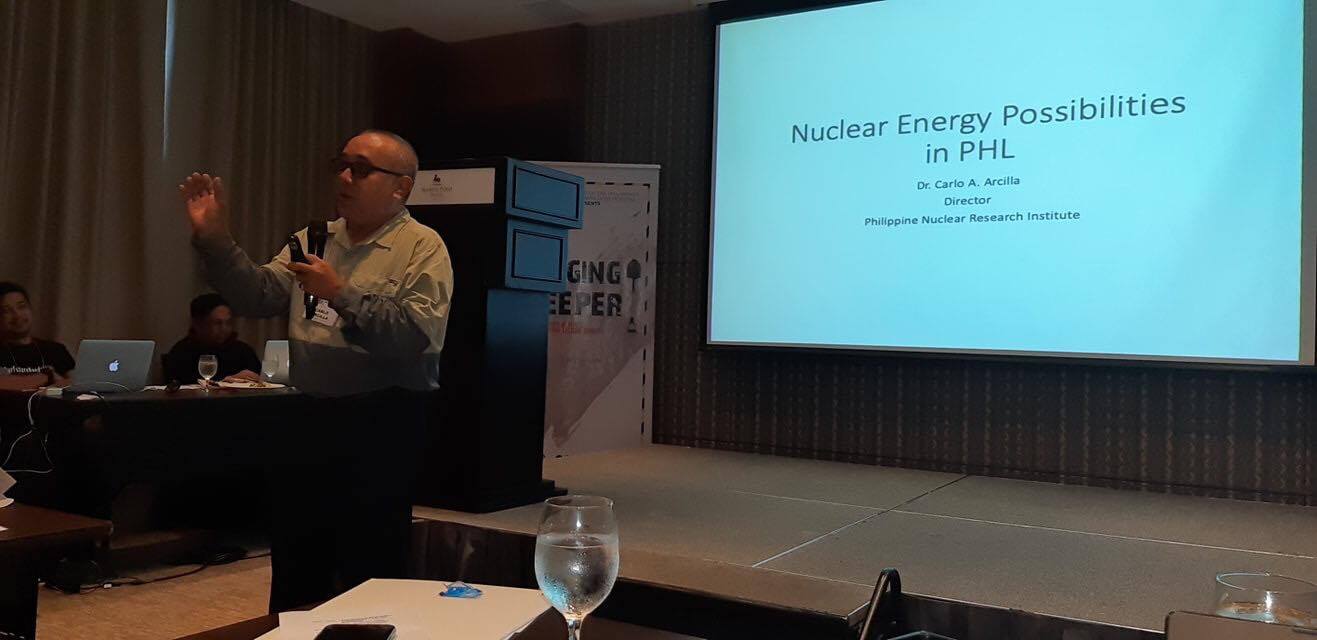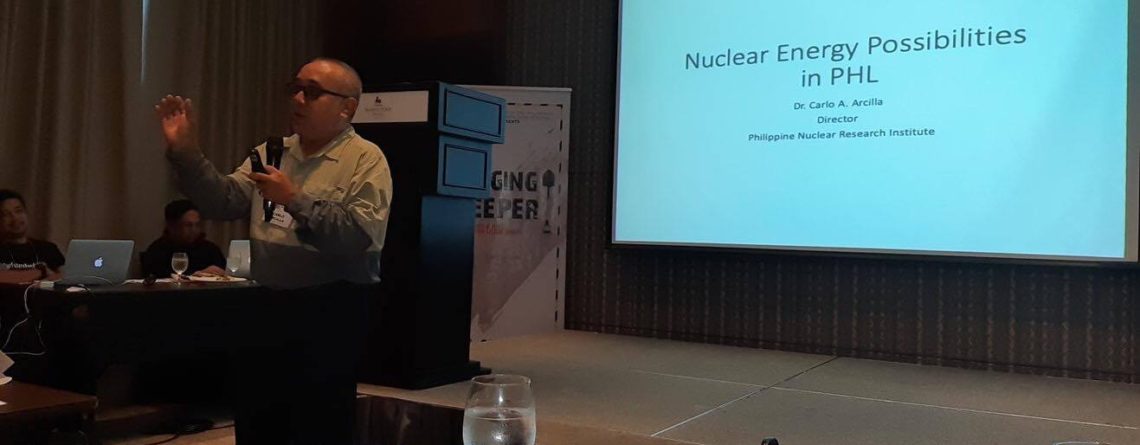PNRI: Nuclear power should be in the country’s energy mix
The chief nuclear scientist of the country stressed his position that the country should strongly consider the use of nuclear energy in producing electricity.

Dr. Carlo Arcilla, director of Philippine Nuclear Research Institute (PNRI) (Chamber of Mines of the Philippines / MANILA BULLETIN)
Dr. Carlo Arcilla, director of Philippine Nuclear Research Institute (PNRI), made his declaration in a lecture forum organized by the Philippine Council for Industry, Energy and Emerging Technology Research and Development (PCIEERD) and the Chamber of Mines of the Philippines (COMP) in Pasig City Friday.
Arcilla argued that the biggest stumbling block in the use of nuclear power is not technology but perception. For many Filipinos, the word “nuclear” is always immediately translated to an explosion.
The PNRI director posits that nuclear power is cleaner and less wasteful than coal, it is a stable resource, technologies to mitigate the risks have advanced, and it produces less carbon pollution than solar power.
He even showed that we can get more radioactivity from eating a banana, which contains radioactive potassium, than standing in front of an operating nuclear power plant.
There are more than 450 nuclear power plants actively operating in the world and most of them are in the most progressive countries.
Arcilla though is not ready to give up on coal as the primary source of baseline power.
Germany, as an example, produces fifty percent of its electricity in coal-fired power plants.
The PNRI was recently embroiled in an issue which many believe as remotely connected to nuclear power.
The PNRI was dragged into a controversy when they dipped their hands into vinegar and soy sauce testing.
In his opening, Arcilla said that nuclear science can actually serve many of the needs of consumers.
The quarterly mining lecture series is an undertaking of the Chamber of Mines of the Philippines. It is intended to stir discussions on issues very important to industry and national development.
The theme for this quarter is “Exploring the alternative sources of energy and understanding the EPIRA law.”
Source: Manila Bulletin


